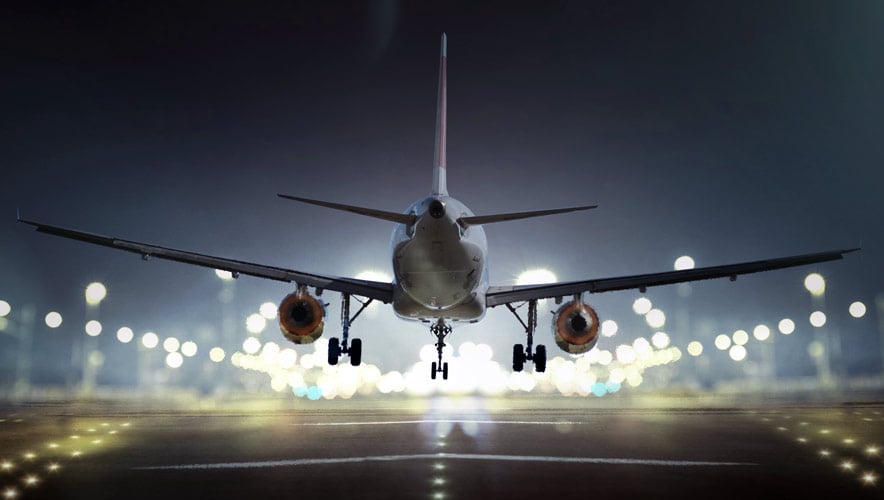Air Travel Is Overwhelmed with Summer Deluge of Travelers
The airline industry might have ticked off the wrong passenger when it cancelled Pete Buttigieg's Friday flight from New York to Washington, DC. That's U.S. Transportation Secretary Pete Buttigieg, who had just finished grilling airline executives at a Thursday meeting on widespread flight disruptions.
Transportation Secretary Pete Buttigieg says he's pushing airlines to hire more customer-service agents and take other steps to avoid travel woes this summer. Buttigieg wants the airlines to stress-test their schedules amid a spate of flight cancellations. https://t.co/F7Nqu30DRn
— The Associated Press (@AP) June 19, 2022
At the meeting, the Associated Press reported that “Buttigieg said he is pushing the airlines to stress-test their summer schedules to ensure they can operate all their planned flights with the employees they have, and to add customer-service workers. …[He] said his department could take enforcement actions against airlines that fail to live up to consumer-protection standards.”
During the call, the AP reported, airline executives said they were taking steps to avoid the Memorial Day weekend air travel fiasco, when airlines cancelled 2,800 flights, primarily due to weather and staffing issues. Based on this weekend, the early returns on the airlines’ efforts are dim: more than 3,000 flights were cancelled.
Setting aside weather-related disruptions, which create headlines and news photos featuring bedraggled and stranded passengers every summer (and winter, too, for that matter), a tight labor market appears to be a significant contributor to the issues this year. In May, Airline Weekly reported that the U.S. Federal Aviation Administration issued fewer than 5,000 new certifications for airline transport pilots in 2021, though airlines estimated they needed to hire 12,000 pilots this year.
“The pilot shortage for the industry is real, and most airlines are simply not going to be able to realize their capacity plans because there simply aren’t enough pilots, at least not for the next five-plus years,” United Airlines CEO Scott Kirby said in April.
At a May meeting of members from the ASIS International CSO Center on transportation policies, one security executive noted that the pilot shortage is something they are watching closely and will factor into their company’s travel safety and security planning.
At a conference of business executives in New York earlier this month, American Airlines CEO Robert Isom said, “There is a supply and demand imbalance right now, and it really is within the regional carrier ranks. We have probably 100 aircraft or almost 100 aircraft that aren’t productive right now, that aren’t flying.” The somewhat oversimplification of the issue is this: an airline industry forced to drastically scale down operations from a global pandemic is not able to keep pace the rapidly climbing demand for air travel services. Axios reported the imbalance could persist well into 2023.
“As countries reopen borders and COVID curbs fall away, travel has sprung back with such voracity that it’s resulted in an unprecedented labor crunch,” Bloomberg reported, “made worse by the pandemic-induced layoffs of hundreds of thousands of workers, from pilots to cabin crew and ground-handling staff. Many are in no mood to come back, but even if they were, scaling up at such pace is a risk for airlines and airports, with spiraling inflation and economic pressures putting a question mark over how sustainable the current demand really is.”
Buttigieg said before pursuing any enforcement actions, he wanted to see how the airlines performed during the busy Fourth of July weekend. However, Buttigieg runs the risk of sounding hypocritical because the Federal Aviation Administration has its own staffing shortages affecting security screening wait times.
The issue is not just a U.S. problem. Bloomberg quoted the CEO of Sydney, Australia Airport, Geoff Culbert, “All airports and airlines are short staffed at the moment, we’re not as attractive a place to work as before. There’s still an element of concern around job security.”
Another airline industry publication, Simple Flying, had this to say about Australia’s premier carrier: “Left without a formidable short-term or even a long-term solution to its staffing problems, Qantas is asking its office employees to yet again assist and work the ground services ahead of the July holiday period.”
The Jerusalem Post reported that El Al, Israel’s largest carrier is struggling to fill positions, along with Ben-Gurion Airport, whose spokesperson asked that summer travelers going to the busy airport to “come with patience” and to avoid bringing checked bags.
And then there’s Europe, which is experiencing the same staffing issues as other parts of the world, and adding a hotbed of worker unrest into the mix. Reuters reported airports in Germany, France, Spain, and the Netherlands are trying to lure workers with higher pay and bonuses for people who refer someone who gets hired. That might be a problem as increasing numbers of air travel related organizations in Europe plan work stoppages:
- British Airways Staff Vote on Possible Strike Amid Staffing Woes, 30 May, Bloomberg
- Italian Low-Cost Airline Staff to Strike on June 25th, 15 June, The Local
- Air France Expects No Disruption from June 25 Pilot Union Strike, 16 June, Reuters
- Brussels Airlines Pilots and Cabin Crew to Strike this Week, 20 June, Business Traveller
- Spain-Based Cabin Crew at easyJet Plan July Strike, 21 June, Reuters
- Flights in Norway Cancelled Due to Technician Strike, 21 June, The Local
